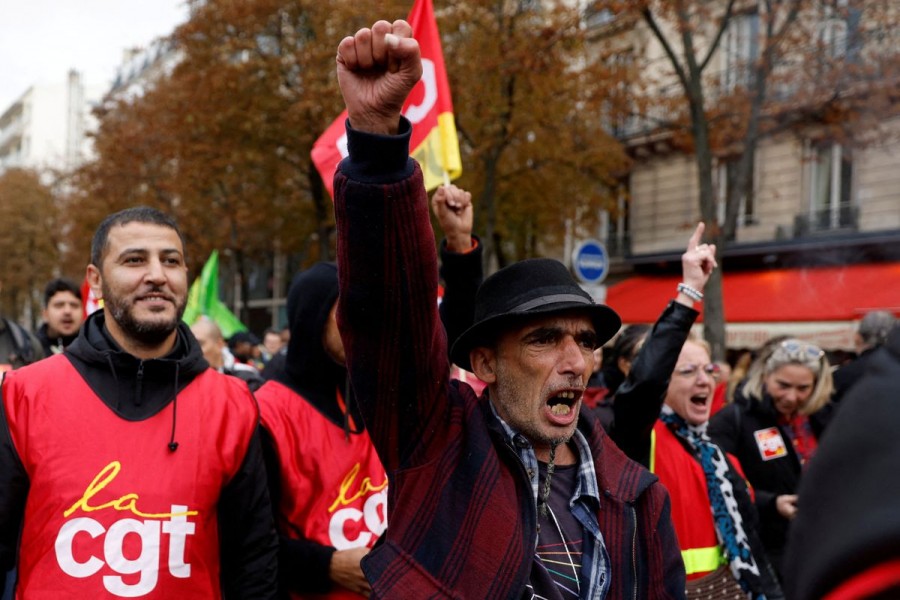French Prime Minister Elisabeth Borne on Tuesday will unveil the details of a pension reform that is already angering unions and a large majority of voters and will be a key test of President Emmanuel Macron's ability to implement change.
One thing is clear: The French will have to work longer than they do now.
The most likely scenario would see the government raising the retirement age to 64 from 62 currently. Macron initially banked on 65, but giving up one year will make it easier to get the reform adopted in parliament.
What is also certain: The government is heading for a clash with labour unions. All of them, including the moderate, reform-minded CFDT have said they reject increasing the retirement age.
For them 64 or 65 doesn't matter much. Either is a no-go.
But the age target is key for another group -- the conservative Les Republicains (LR). How its lawmakers vote will make or break the reform in parliament, where Macron lost his outright majority last year.
LR may have lost a lot of MPs in last year's election, but their MPs, plus some centre-right allies, added to Macron's centrist group, would be enough to push the reform through.
And LR's new chief Eric Ciotti said he would back the reform - if his conditions are met, including increasing the retirement age to 64 rather than 65 and bumping up the minimum pension for all, rather than only for new retirees.
Not all in his party agree, however, so there is still some uncertainty.
But at this stage it seems the biggest challenge will be in the streets.
It's unclear whether the unions can gather enough people, angry not only with the pension reform but also with issues including a cost-of-living crisis, to derail Macron's plans.
PROTESTS
Pension reform in France, where the right to retire on a full pension at 62 is deeply cherished, is always a highly sensitive issue and even more so now with social discontent mounting over the cost of living.
With currently one of the lowest retirement ages in the industrialised world, France spends more than most other countries on pensions at nearly 14 per cent of economic output, according to the Organisation for Economic Cooperation and Development.
But polls show pension reform is unpopular.
Only 27 per cent of voters agree with increasing the retirement age - most of whom back 64 and not 65 - an Elabe poll for BFM TV showed last week. Some 47 per cent want no change to the retirement age and 25 per cent want retirement to be earlier than now.
Macron had to put his first pension reform bid on ice in 2020 as the government rushed to contain the COVID outbreak and save the economy.
Now, although recent strike action has been limited to specific sectors, such as refineries and airlines, outrage over pension reform could easily spark broader protests.
But government spokesman Olivier Veran said: "We're not reforming pensions to be popular but to be responsible. We'll go all the way because it's the only way our social model can survive."


